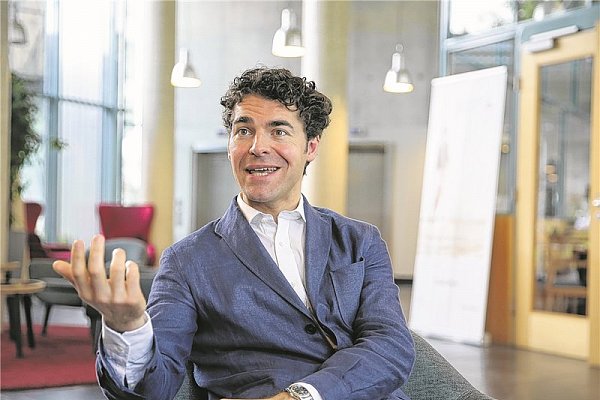Future of Europe
Head of section: Alberto Alemanno, HEC Paris
Innovation in democracy and the future of Europe are intertwined as policymakers and academics strive to find solutions to a swath of issues. Ongoing debates include the concept of treaty changes, the institutional setup of the European Union, the politicization of Europe, and the fate of European federalism.
Future of Europe
Europeanization Against All Odds – A Professional-Personal View on Two Decades of Central and Eastern European Countries’ EU Membership
A couple of days after Czechia entered the European Union in May 2004, I went to Vienna for a few days together with my wife and friends. The destination was no coincidence because, for Czechs in general and Southern Moravians like me in particular, Vienna had a profound symbolic meaning during the period of communism and the subsequent transition to democracy. As EU citizens, we visited the Austrian capital, an object of many historical longings and resentments, given the complicated Czech history under the Habsburg Empire. However, at the time of our visit, I perceived Vienna differently. For me, 2004 meant the symbolic end of the Cold War, a merger of ‘old’ and ‘new’ Europe, and completion of the dream we saw already shortly after the Velvet Revolution: the return to Europe.
3.05.2024

Future of Europe
Romania: Spartans, Helots, and the Rule of Law in Europe
Romania has entered the Union in 2007, together with Bulgaria and as a Big Bang afterthought. Both countries joined with Cooperation and Verification Mechanism (CVM) strings attached. The CVM, a sui generis stopgap whose very name conjured up ambivalence, was initially meant to lapse after three years. It was formally lifted only in 2023, albeit actual monitoring was discontinued for Bulgaria in 2019 and for Romania in 2022. Due to their geographical and cultural vicinity, accession twinning, and the CVM, these two countries have repeatedly been analogised, most recently with respect to Schengen enlargement. They are dissimilar in that, although the CVM formally applied very similar conditions to both (anticorruption, judicial independence), only Romania created strong anticorruption institutions.
2.05.2024

Future of Europe
How Time Has Stopped Again – Hungary and Europe Twenty Years after the EU’s Big Bang Enlargement
I would like to approach the 2004 EU accession from the perspective of time. Time is perceived to fly fast in certain periods, then it appears to slow down before speeding up again. In Hungary, for example, time stood still during the sleepy decades of state socialism before, from the late 1970s onward, transformations of historic significance occurred in no more than a couple of years. Still, although there were some cathartic episodes here and there, the change of the political and economic system took place peacefully: law professors, historians, and other intellectuals sat down at a table in 1989 to lay down the fundamentals of a new social and political order. None of them was really an expert on capitalism; they approached the issue as social scientists. The intent to create a more dynamic system—one that respected the full range of human rights as well as individual endeavors—connected these people, notwithstanding their varied backgrounds.
29.04.2024
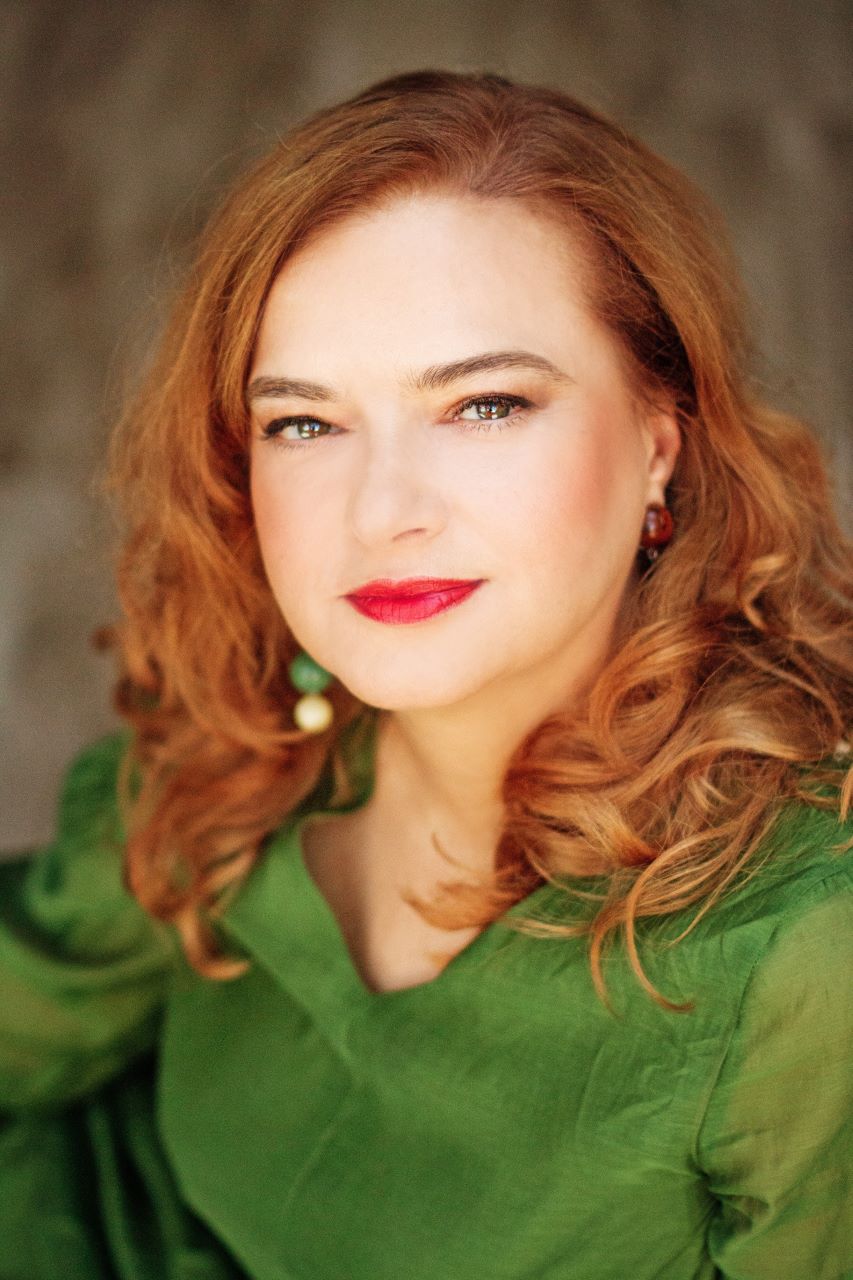
Future of Europe
On Exceeded Expectations and Lost Illusions – How Its Legacies Haunt Europe Today
Having been born ‘behind the Iron Curtain,’ and now teaching history with a focus on Central and Eastern Europe in European Studies and liberal arts programs in Maastricht, my personal trajectory cannot be properly comprehended and would not even be imaginable without the EU’s ‘big bang enlargement.’ I happen to have received my bachelor’s degree from University College Utrecht back in 2003 when the possibilities of studying at Western institutions remained rare for students from Central and Eastern Europe.
26.04.2024

Future of Europe
East Europeans, the Eternal Poor Children of the Union?
In this conversation with Petr Agha, Joseph H. H. Weiler discusses the EU’s persistent democratic deficit and how the Union’s equilibrium has been disrupted; explores the rise of populism and questions of national identity; contrasts Eastern and Western Europe; and reflects on the evolving geopolitical landscape. “Let's fix European democracy first, and then I would be in favour of majoritarianism because veto power is undemocratic.”
25.04.2024

Future of Europe
Weaken Constitutional Review, Strengthen European Democracy – In Conversation with Nik de Boer
Are constitutional judges well equipped to deal with fundamental constitutional questions about the EU? Should national constitutional courts aim to address the EU democratic deficit? Several scholars see national constitutional courts as a constructive force in the EU legal order. Nik de Boer argues differently, and reasons why is it better to leave certain issues to parliaments rather than constitutional courts? In this conversation with Kasia Krzyżanowska, Nik de Boer discusses his recent book “Judging European Democracy. The Role and Legitimacy of National Constitutional Courts in the EU” (Oxford University Press 2023). The transcript was amended to improve readability and clarity.
9.04.2024

Future of Europe
Pellegrini won in Slovakia. So did Fico, Orbán, and the Kremlin
Peter Pellegrini won the presidential election in Slovakia last weekend with 53 percent of the vote. Pellegrini, who ran against former diplomat Ivan Korčok as the candidate of the ruling coalition led by Robert Fico, entered the race as the absolute favorite – for months before the campaign even started, Fico’s political ally of many years was already polling as the most likely potential candidate for the top constitutional post. The first round of the election two weeks ago changed that dynamic since Korčok emerged first then. As we understand now, it may have helped mobilize the part of the electorate that did not vote for Pellegrini at first but was absolutely opposed to Korčok. The part of the electorate in question is mainly composed of people who have for years been mobilized by far-right and anti-system politicians via emotions of fear and hate.
9.04.2024

Future of Europe
Colonialism and European Integration – In Conversation with Hanna Eklund
In this conversation with Kasia Krzyżanowska, Hanna Eklund discusses her recent article, “Peoples, Inhabitants and Workers: Colonialism in the Treaty of Rome”, published in the European Journal of International Law. She talks about the “coded language” of colonialism in the Treaty of Rome, explains the approach of the Treaty drafters to the African independence movements, and reflects on the colonial legacies of contemporary EU law.
14.03.2024

Future of Europe
Politics of Uncertainty: Una Bergmane on Cold War superpowers, Soviet disintegration and a relentless Baltic push for independence
Una Bergmane’s main research interests are the history of the Soviet collapse, the Baltic states, diasporas, transnational networks, collective memory, and the post-Cold War transitions in the Baltic Sea region. She is currently an Academy of Finland research fellow at the Aleksanteri Institute in Helsinki. Before joining the Institute, she held various fellowships across the world; she was a postdoctoral fellow at Cornell University in the US, a teaching fellow at the London School of Economics, and a postdoctoral researcher at the Academy of Finland-funded BALTRANS project. She obtained her Ph.D. from Sciences Po in Paris. The focus of our podcast today is Una’s first book, which was published by Oxford University Press in 2023. As already mentioned, the title of the book is "Politics of Uncertainty: the United States, the Baltic Question, and the Collapse of the Soviet Union". In a nutshell, the book tells the story of how Cold War superpowers tried to deal with the Baltic [...]
4.03.2024

Future of Europe
In Changing Geopolitical Context, EU Democracy Support Loses Momentum
Despite the launch of some new programs, the EU’s security and peacebuilding missions increasingly focused on containment of conflict, even though democracy support is defined as a central pillar of the EU’s conflict-resolution strategy - writes Zselyke Csaky.
22.02.2024

Future of Europe
How Do You Tear Down a Border? – Matthew Longo on the Pan-European Picnic and the Meaning of Freedom
In this conversation with RevDem editor Ferenc Laczó, Matthew Longo – author of the new book The Picnic. A Dream of Freedom and the Collapse of the Iron Curtain – discusses what motivated him to research the Pan-European Picnic of 1989; why he places such an emphasis on the uncertainty of the situation in those crucial days; and what conclusions he has drawn regarding the meaning of freedom in 1989 – and how that meaning has changed since.
5.02.2024

Future of Europe
Towards a Creative, Empathetic, and Solidaristic Culture of Remembrance – Mirjam Zadoff on Her Explorations of Global Memory in the 21st Century
In this conversation with RevDem editor Ferenc Laczó, Mirjam Zadoff – director of the Munich Documentation Centre for the History of National Socialism and author of Gewalt und Gedächtnis: Globale Erinnerung im 21. Jahrhundert – discusses what motivated her to publish a collection on global memory and which key themes she wanted to address.
19.01.2024

Future of Europe
For Money Laundering To Occur, All That Authorities Have To Do Is Nothing
In this conversation with RevDem editor Robert Nemeth, Dean Starkman and Neil Weinberg (International Consortium of Investigative Journalists) talk about Cyprus Confidential, the investigation exposing how Cyprus-based financial services firms have enabled the Russian elite — including Vladimir Putin’s inner circle — to shelter their wealth and shield billions of dollars in assets from the threat of impending sanctions. They explain how this system worked and what enabled it, but also share insights into how journalists work on cross-border collaborative projects on such scale.
15.12.2023

Future of Europe
Democracy cannot really function if it is not liberal. Interview with Cas Mudde
Among the challengers to liberal democracy in Europe, we can count populists, autocrats, and the increasingly often mentioned illiberals. But who are they and what is illiberalism? How does it relate to populism? Can illiberals be democrats at all? What are the policy implications of having illiberal politicians, especially of the radical right, in power in the EU? This interview explores these questions with Professor Cas Mudde. It covers various issues at the intersection of academic and policy research on populism, illiberalism, democracy, and the radical right. It discusses whether the growing body of literature on illiberalism addresses something that is fundamentally new on the global political agenda, how this literature relates to academic research on populism, and if illiberalism and democracy are reconcilable against the backdrop of a global trend of autocratization, which many scholars of democracy have noted, and which is often attributed to illiberal and populist [...]
8.12.2023

Future of Europe
We Need the Second European Rescue of the Nation-State
This is a rejoinder that ends the RevDem book symposium. You can read three book reviews by Peter J. Verovšek, Gábor Halmai and Petr Agha.
6.12.2023

Future of Europe
Central and Eastern Europe after the Polish Elections: In Conversation with Daniel Hegedüs
Despite the Polish opposition election victory in the 15 October elections on 27 November President Duda swore in the Law and Justice Party ahead of a confidence vote that the incumbents seem set inevitably to lose. In this latest Rule of Law podcast, Oliver Garner and Daniel Hegedüs discuss the implications of the election for Central and Eastern Europe. Daniel is a German Marshall Fund fellow with expertise in populism and democratic backsliding and the foreign affairs of the Visegrad countries.
4.12.2023

Future of Europe
The Swarm That Didn’t Sting the Bourgeoisie–Arthur Borriello and Anton Jäger Interpret the Populist Left
In The Populist Moment, Arthur Borriello and Anton Jäger analyze a political cycle, “the long 2010s,” when left populists – perhaps most notably Syriza in Greece, Podemos in Spain, Jean-Luc Mélenchon and his various formations in France, Corbynism in the UK, and Sanders’ movement in the US – made notable attempts to rethink and revive the left by adopting a populist identity. The core agendas of this concise, dense, and engaging book are to investigate the specific origins and broader causes of this “populist moment”; to describe and explain the ebb and flow of its major representatives; to assess the major strengths and weaknesses of left populists in more general terms; and to conjecture about where such attempts to revive the left might be headed next. Borriello and Jäger manage to deliver on this ambitious agenda by offering numerous insights and developing a coherent overall interpretation – even though this comes at the price of somewhat narrow empirical foci and concerns.
30.11.2023

Future of Europe
Ukrainians Started as the Scots and Ended Up as the Irish – Yaroslav Hrytsak on the Global History of Ukraine
In this conversation with Visible Ukraine editor Marta Haiduchok and RevDem editor Ferenc Laczó, Yaroslav Hrytsak – author of the new book Ukraine: The Forging of a Nation – explains what makes Ukraine a geopolitically crucial borderland and why the Ukrainian question has become acute at the most critical turns in global history.
24.11.2023

Future of Europe
Slovakia’s Path, the Visegrad Group Today, and the Implications for Europe – Miroslav Wlachovský on Current Changes
In this conversation with RevDem editor Ferenc Laczó, Miroslav Wlachovský – Minister of Foreign and European Affairs of Slovakia in the recent caretaker cabinet headed by Ľudovít Ódor – discusses Slovakia’s role in the EU and his priorities while in office; analyses the recent Slovak elections and the potential consequences its outcome will have in terms of the country’s foreign policy; and reflects on the relationship between Slovakia and Hungary as well as the future of the Visegrad Four. Miroslav Wlachovský is a Slovak diplomat who acted as Minister of Foreign and European Affairs of Slovakia between May and October 2023. Prior to his ministerial appointment, Wlachovský served as Slovak ambassador to the United Kingdom (2011 to 2015) and to Denmark (2018 to 2022). In collaboration with Lucie Hunter
20.11.2023

Future of Europe
The Future in the European Union — In Conversation with Massimo Fichera
In this conversation with RevDem editor Kasia Krzyżanowska, Massimo Fichera talks about the need to include the future when designing EU constitutional architecture, criticises the economic components’ dominance over the European integration process, and explains his idea of communal constitutionalism as a remedy to presentism of constitutional theories.
15.11.2023

Future of Europe
Take Back Control — Over Brexit Narrative
The book Taking Control: Sovereignty and Democracy After Brexit by Philip Cunliffe, George Hoare, Lee Jones, and Peter Ramsay seeks to put Brexit into the perspective of the ongoing crisis of political representation in Britain and offers the reforms to overcome it.
30.10.2023

Future of Europe
Taking Stock: The Polish Opposition Victory and the Rule of Law
By stark contrast to the worsening situation in Hungary, Poland may be facing a new dawn and a restoration of liberal democracy. But caution may be required to ensure that this dawn does not darken again into political acrimony and fragmentation.
26.10.2023

Future of Europe
Why the Polish Elections Cannot Be Repeated in Orbán’s Hungary
Poland is returning to the path of democracy and could become one of the most influential member states of the European Union. By comparison, Hungary’s prospects look bleak.
23.10.2023

Future of Europe
Peoples of Europe — National Leaders and Public Opinion in The Post-Maastricht Era: In Conversation With Dermot Hodson
Why was the ratification of the Maastricht Treaty a significant moment for the EU? Who are the right-wing populists in the EU and how has their modus operandi changed throughout the decades? Why did the national leaders engage in the EU politics? In this conversation with RevDem editor Kasia Krzyżanowska, Dermot Hodson talks about his most recent book Circle of Stars. A History of the EU and the People Who Made It published by Yale University Press. Dermot Hodson — Professor of Political Economy and Digital Technologies at Loughborough University London and Visiting Professor at the College of Europe. He has published widely on EU governance and integration and previously worked as an economist at the European Commission’s Directorate General for Economic and Financial Affairs. Circle of Stars: A History of the EU and the People Who Made It was published by Yale University Press on 10 October 2023. Kasia Krzyżanowska: As Perry Anderson has famously put it, most of the [...]
16.10.2023

Future of Europe
Reimagining Europe: Confronting the Challenges of Integration and Disunion
Petr Agha reviews Stefan Auer’s European Disunion. Democracy, Sovereignty and the Politics of Emergency. This is the third piece in a book symposium. The first piece by Peter J. Verovšek you can read here, the second one by Gábor Halmai here. A rejoinder by Stefan Auer will be published in the course of the coming weeks. Petr Agha’s research and teaching focuses on some foundational issues and challenges in contemporary law and politics. Petr holds a PhD in Law and Criminology from the University of Antwerp. He also obtained degrees in law, philosophy and political sciences from the Queens University Belfast, Glasgow University and Masaryk University Brno. He is the editor of Human Rights between Law and Politics (Hart Publishing), Law, Politics and the Gender Binary (Routledge) and Velvet Capitalism (Routledge). Introduction The existing theories of European integration often fall short in providing a comprehensive explanation for the fragmentation of the European project. [...]
12.10.2023

Future of Europe
Ruzha Smilova on Bulgaria gripped by political instability
In conversation with Flora Hevesi, Ruzha Smilova explores Bulgaria's complex and ongoing political crisis, which has left a profound mark on the country's political landscape.
3.10.2023

Future of Europe
The ‘Political and the ‘Legal’ Approach of the EU?
Gábor Halmai reviews Stefan Auer’s European Disunion. Democracy, Sovereignty and the Politics of Emergency.
22.09.2023

Future of Europe
l’Europe qui confond — in Conversation with Hans Kundnani
What is “Eurowhiteness”? How do EU member states deal with their colonial pasts? How does the far right function in the EU? What is the structure of power within the EU? How was Brexit racially structured? Hans Kundnani speaks about his recent publication – Eurowhiteness: Culture Empire and Race in the European Project – with RevDem editor Kasia Krzyżanowska.
14.09.2023

Future of Europe
Negotiating Amidst Turmoil: Analyzing the Interplay of Dialogue and Conflict in Kosovo-Serbia Relations
In this conversation with assistant editor Lorena Drakula, Bodo Weber, a Senior Fellow at the Democratization Policy Council in Berlin, discusses the current situation, as well as the complex dynamics of the Kosovo-Serbia dialogue, unpacking its democratic implications, challenges, and opportunities.
22.07.2023

Future of Europe
The War in Ukraine and Transition: In Conversation with Maria Popova
Despite, or perhaps due to, the war in Ukraine there have been positive developments in combating corruption and other issues in anticipation of EU membership. In this RevDem Rule of Law podcast Teodora Miljojkovic discusses these issues around transition with Professor Maria Popova.
20.06.2023

Future of Europe
How Europeans Live Now: Ben Judah on Capturing the Arc of Life in Our Time
In this conversation with RevDem editor Ferenc Laczó, Ben Judah – author of the new book This is Europe. How We Live Now – discusses what motivated him to tell stories on a continental scale, which authors and books have inspired him the most, and what has been his approach to narrating. He also reflects on key themes have emerged from his extensive travels and reportage and on what he sees as the most consequential new aspects of how Europeans live now.
14.06.2023

Future of Europe
Suspending Hungary’s Presidency of the Council of the EU? In Conversation with John Morijn and Alberto Alemanno
In recent weeks proposals by the Meijers Committee to suspend Hungary’s Presidency of the Council of the EU in 2024 have received support in a resolution of the European Parliament. In this RevDem Rule of Law podcast, Oliver Garner discusses these proposals in the wider context of the Rule of Law crisis with John Morijn and Alberto Alemanno.
9.06.2023

Future of Europe
Be Realistic, Demand Significant Change! Daniel Chandler on What a Progressive Liberal Society of the Future Could Look Like
In this conversation with RevDem editor Ferenc Laczó, Daniel Chandler – author of the new book "Free and Equal: What Would a Fair Society Look Like?" – discusses key principles that a better and fairer society could be based on; shows what makes John Rawls’ ideas so exceptionally relevant today and how they could help improve the democratic process; explains how placing questions of power, control, dignity, and self-respect at the center of liberal economic thinking would foster new economic arrangements; and discusses where egalitarian liberalism has already been practiced and with what consequences.
22.04.2023

Future of Europe
Weak prospects for Russia’s democratization
Wolfgang Merkel offers a typological classification of Putin's Russia after exploring how it compares with fascist regimes in Germany and Italy as well as Stalinism, and opines that several factors will contribute to Russia's "poor prospects" for democratization.
22.03.2023

Future of Europe
In Conversation with Danuta Hübner — Ukraine’s Road to EU Accession
In this conversation with Kasia Krzyżanowska, Danuta Hübner explains the specificities of the EU accession path for Ukraine, elaborates on the difficulties other countries had to overcome (most notably Poland), showcases the problems with Turkey’s and Western Balkans’ EU accession, discusses the criteria of joining the EU, and shares her visions of the future EU.
6.03.2023

Future of Europe
Adam Michnik: The war in Ukraine is not a war between the Russian people and the Ukrainian people
This war, of which we are commemorating the anniversary today, is undoubtedly the most important war of our time, because it is a war in which the imperial-chauvinist-totalitarian project is struggling with the democratic, European, pluralist project on the one hand.
28.02.2023
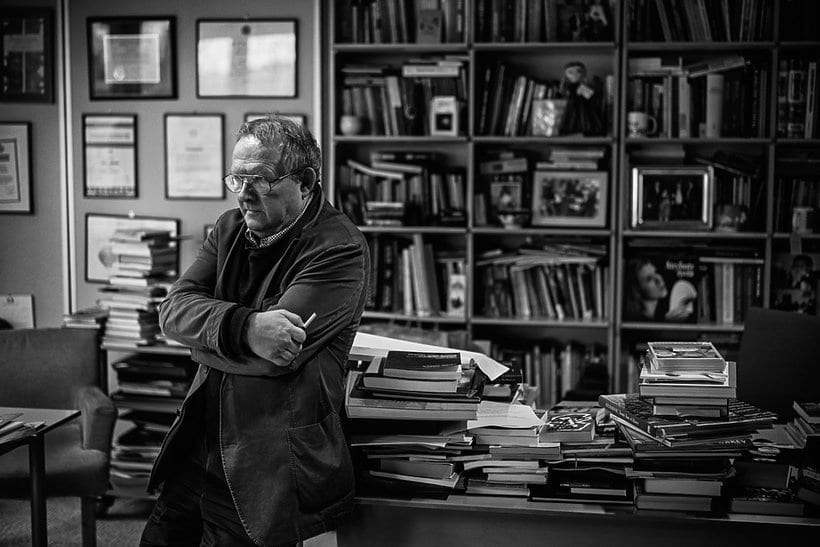
Future of Europe
Ukraine in the Union, or the end-of-history thesis reinvigorated
In this op-ed, RevDem managing editor Michal Matlak looks at the relevance of the war in Ukraine to Fukuyama's often-mocked thesis of the end of history and addresses the implications of the accession process for Ukraine, as well as for the EU.
21.02.2023

Future of Europe
Digital Fragmentation. Habermas on the New Structural Transformation of the Public Sphere
Markus Patberg reviews Jürgen Habermas’s new book Ein neuer Strukturwandel der Öffentlichkeit und die deliberative Politik [A New Structural Transformation of the Public Sphere and Deliberative Politics].
2.02.2023

Future of Europe
Wolfgang Merkel: “Democracy and capitalism are forcibly married”
In this interview with Bascha Mika, political scientist Wolfgang Merkel on the close connection between open societies and capitalist economic systems and the consequences of social inequality.
27.01.2023

Future of Europe
Building Enduring Democracies: Filip Milačić on the Effects of Nation and State Building on Democratic Consolidation
In this conversation with RevDem assistant editor Lorena Drakula, Filip Milačić – author of the book "Stateness and Democratic Consolidation. Lessons from Former Yugoslavia" – discusses the effects unresolved issues of stateness can have on the trajectories of democratic consolidation; how political actors can instrumentalize polarization in society to justify authoritarian measures; and what can be learned for democracy promotion projects today.
16.01.2023

Future of Europe
Asking the wrong questions, the wrong way: Why replicating “national consultations” is an inadequate response to their success
Although national referenda have become a rare species in post-2010 Hungary, the use of another instrument of plebiscitarian democracy—non-binding informal polls called national consultations—has not only been serving as a legitimization tool of government policies, but it has also been adopted by an opposition movement as a mobilization technique. This article argues that the strategic adoption of populist democratic repertoires, along with their main procedural flaws, is a threat to democratic representation. There is a need to shift discussions toward how these processes can be improved.
19.12.2022

Future of Europe
Italy after the Elections – Implications for National and European Politics
In this post, Maria Paula Angel Benavides summarizes the recent panel discussion "Italy after the Elections - Implications for National and European Politics," which was co-hosted by RevDem and the CEU Democracy Institute.
28.10.2022

Future of Europe
RevDem Debate: Rainbow families in the EU: obstacles to full equality
This debate is based on a report „Obstacles to the Free Movement of Rainbow Families in the EU” written for the European Parliament by Alina Tryfonidou. The debate will take place on Thursday, 27.10.2022 at 6 PM CET on RevDem's Facebook page
24.10.2022

Future of Europe
Ramona Coman on the emergence of the EU’s rule of law policy shaped by growing dissensus
In this discussion with Ramona Coman by RevDem managing editor Michał Matlak, they discuss the questions addressed in her recent book "The Politics of the Rule of Law in the EU Polity: Actors, Tools and Challenges" (Palgrave 2022), including the difference between liberal and anti-liberal ideas, and how "dissensus shapes the EU’s rule of law policy and tools."
14.10.2022

Future of Europe
“Vacanze Romane” for the EU’s Values Crisis?
In his latest op-ed, RevDem editor Oliver Garner analyzes the Italian election results and their implications not only for Italy, but also for the European Union.
30.09.2022

Future of Europe
The Way Europeans Stop Migration is Absolutely Horrific: A Conversation with Sally Hayden
In conversation with RevDem editor Ferenc Laczó, Sally Hayden – author of "My Fourth Time, We Drowned: Seeking Refuge on the World's Deadliest Migration Route" – discusses the various detention centers across Libya and sketches the profiles of the people detained in them; reflects on her ambition of centering the voices of the victims and her dilemmas concerning what to release and what not to release about their cruel treatment, and more.
26.09.2022
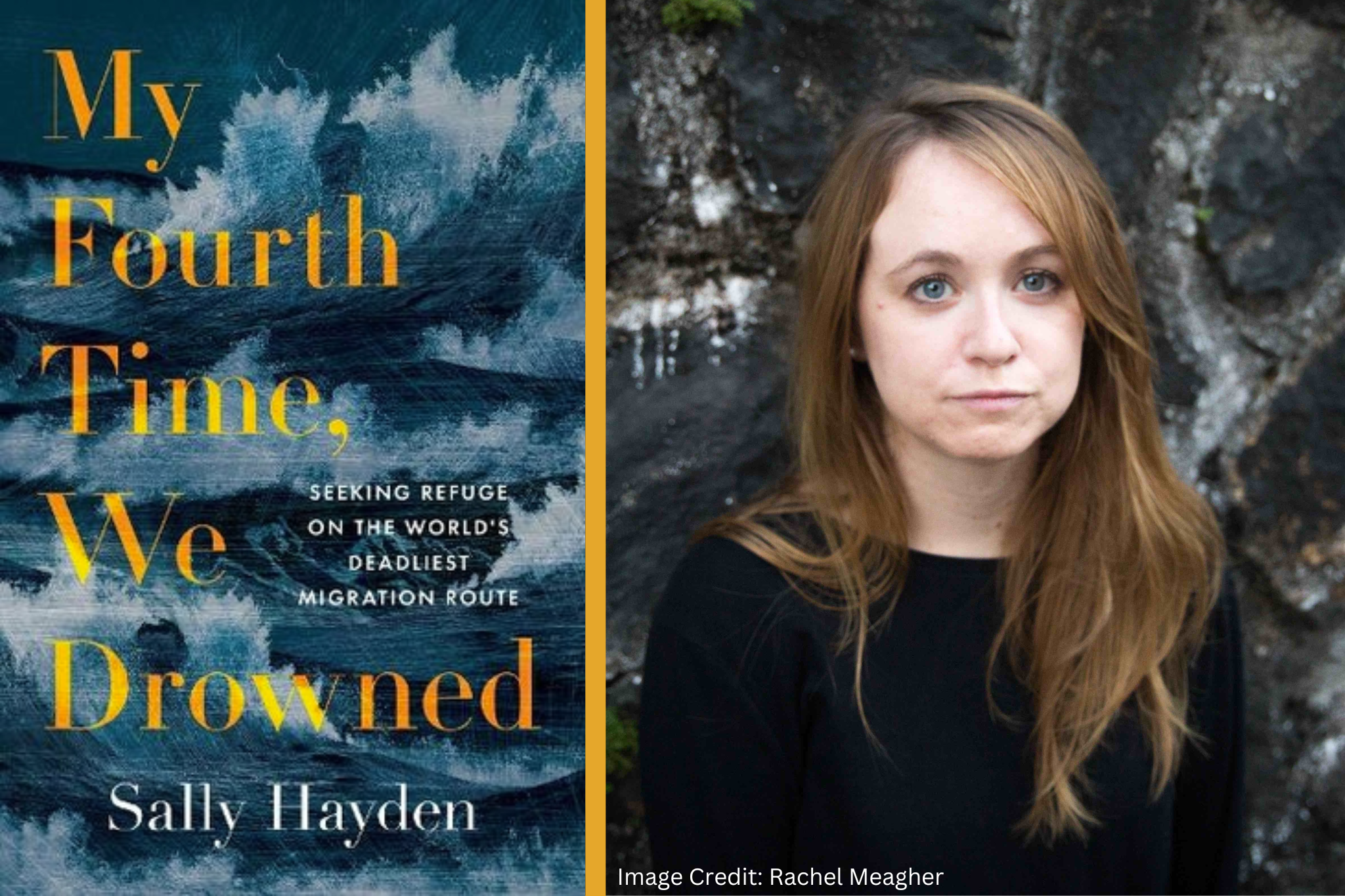
Future of Europe
In conversation with Francis Fukuyama: “Russia would not have invaded Ukraine if it had been a democracy”
In this interview with Francis Fukuyama, hosted by Laetitia Strauch-Bonart (Editor of the Ideas section in the French weekly L’Express) and Michał Matlak (RevDem Managing Editor), they discuss his latest book, the status of liberal and illiberal democracies in the world today, how this relates to Russia, China, and the US, the threats to American democracy today, and more.
19.09.2022

Future of Europe
A turning point of democracy?
To mark the International Day of Democracy, we present an op-ed by Wolfgang Merkel examining the state of democracy around the world.
15.09.2022

Future of Europe
It is a mistake to see the Eastern vision as undemocratic. Peter Verovšek on European memory
In this conversation with RevDem editor Kasia Krzyżanowska, Peter Verovšek — author of “Memory and the future of Europe. Rupture and integration in the wake of total war” — discusses the importance of foundational stories for communities; explains the influence of personal experience on the European integration; shows differences in remembering the past in West and East Europe and ponders on the consequences of Russian aggression on Ukraine for the European memory.
3.09.2022

Future of Europe
Free Speech, Equality, and Tolerance Are Mutually Reinforcing: A Conversation with Jacob Mchangama
In this conversation with RevDem editor Ferenc Laczó, Jacob Mchangama discusses central ideas of his new monograph "Free Speech: A Global History from Socrates to Social Media". The conversation reflects on how to write a global history of this subject; contrasts egalitarian and elitist conceptions of free speech; explores facets of the free speech recession experienced in the early 21st century; and explains why the counterintuitive principle of free speech should be seen as essential.
17.06.2022

Future of Europe
Christine Nissen: Danish Euroscepticism has been in decline since Brexit
On the 1st of June Denmark voted to remove its opt-out on EU’s common security and defense cooperation by an unprecedented large margin – 66,9 % yes against 33,1 % no. Kasper Ly Netterstrøm sat down with Christine Nissen researcher at Danish Institute for International Studies to understand the result and its importance.
10.06.2022

Future of Europe
The State of the Rule of Law in the USA and the EU: In Conversation with Niels Kirst
In this interview for the Rule of Law section, RevDem Editor Oliver Garner converses with Niels Kirst about the state of the Rule of Law in the USA and the EU.
3.06.2022

Future of Europe
Re-establishing the Epistemological Foundations of EU Law: In Conversation with Renáta Uitz
Oliver Garner interviews Renáta Uitz, Co-Director of the CEU Democracy Institute and Co-Editor-in-Chief of RevDem, on the distinct but interconnected roles of the European Parliament and the Court of Justice in combatting the Rule of Law crisis.
26.05.2022

Future of Europe
Change of framing and the need for peace in Ukraine: A reply to Szulecki and Wig
Responding to critiques of their op-ed on why the war in Ukraine should not be discussed using the "democracy vs. autocracy" framework, authors Irina Domurath and Stefano Palestini further develop why orienting the discussion around Russia's abuse of international law could draw more international support and avoid escalation into a Third World War.
25.05.2022

Future of Europe
Reflections of a European Man
In conversation with RevDem editor Kasia Krzyżanowska, Stefan Auer discusses his new book European Disunion. Democracy, Sovereignty, and the Politics of Emergency (Hurst&Company 2022). In a conversation, he points out to the EU hubris, discusses crises that hit the EU recently, puts into a broader context Russian invasion of Ukraine, and shares his scepticism on the future of Europe.
20.05.2022

Future of Europe
Laetitia Strauch-Bonart: Conservatism has little to do with populism
In this discussion with Laetitia Strauch-Bonart hosted by RevDem Editor Michał Matlak, they discuss French President Emmanuel Macron’s ideology; the differences between conservatives and populists; her thoughts on Brexit and Frexit, and more.
13.05.2022

Future of Europe
Citizens’ Assemblies and the International Response on Climate Displacement
In this op-ed, Magdalena Smieszek explains how citizens' assemblies on the national level promote inclusive discourse because of their bottom-up approach; the variety of transnational and global citizens' assemblies focused on climate change; and what impact these assemblies might have on climate change action.
4.05.2022

Future of Europe
Can they ever win? The past and future prospects for an opposition victory in Hungary’s competitive authoritarian regime
By analyzing the recent parliamentary elections, the authors attempt to answer a key question for Hungary and Europe: is Viktor Orban and his ruling party defeatable?
30.04.2022

Future of Europe
Immediate EU membership for Ukraine? In conversation with Dimitry Kochenov
This interview, conducted by Rule of Law section editor Oliver Garner, considers the feasibility of immediate EU accession for Ukraine with Prof. Dimitry Kochenov, Professor in the CEU Legal Studies Department and Lead Researcher in the Democracy Institute Rule of Law work group.
20.04.2022

Future of Europe
The war in Ukraine is all about democracy vs dictatorship
A dictatorship has just brutally attacked its democratic neighbor. It’s not the first time in history that happens, but there are good reasons to see the war in Ukraine as the first one defining the conflict lines of this century.
9.04.2022

Future of Europe
Wolfgang Streeck: Life is easier if you’re not telling others how to behave
In this conversation, sociologist Wolfgang Streeck discusses the EU and European integration, the future of the EU, and more with RevDem editors Laszlo Bruszt and Michal Matlak.
29.03.2022

Future of Europe
Big, but Distant Dreams. Political and Legal Implications of Moldova’s Quest for EU Membership
On 3 March 2022 Moldova applied for EU membership. After the Soviet Union’s dissolution, Moldova started to build its independent statehood based on democratic values. However, the question that arises is whether Moldova reached its political and legal maturity to join the EU.
25.03.2022

Future of Europe
The Conference on the Future of Europe as a technopopulist experiment
Carlo Invernizzi Accetti and Federico Ottavio Reho in their op-ed for RevDem claim that political parties and other intermediary bodies are central for the democratization of the European Union.
22.03.2022

Future of Europe
Signe Larsen: The Federal Telos of the European Union
In this conversation with our editor, Kasia Krzyżanowska, Dr. Signe Larsen talks about the (largely unacknowledged) nature of the EU as a federation, varieties of constitutionalism within EU Member States, and the impact of colonial legacies on the EU.
17.03.2022

Future of Europe
Kiran Klaus Patel: The European Union has unexpectedly become too important to ignore
Ferenc Laczó discusses with Kiran Klaus Patel his latest book "Europäische Integration. Geschichte und Gegenwart" (European Integration: History and the Present Day).
18.02.2022
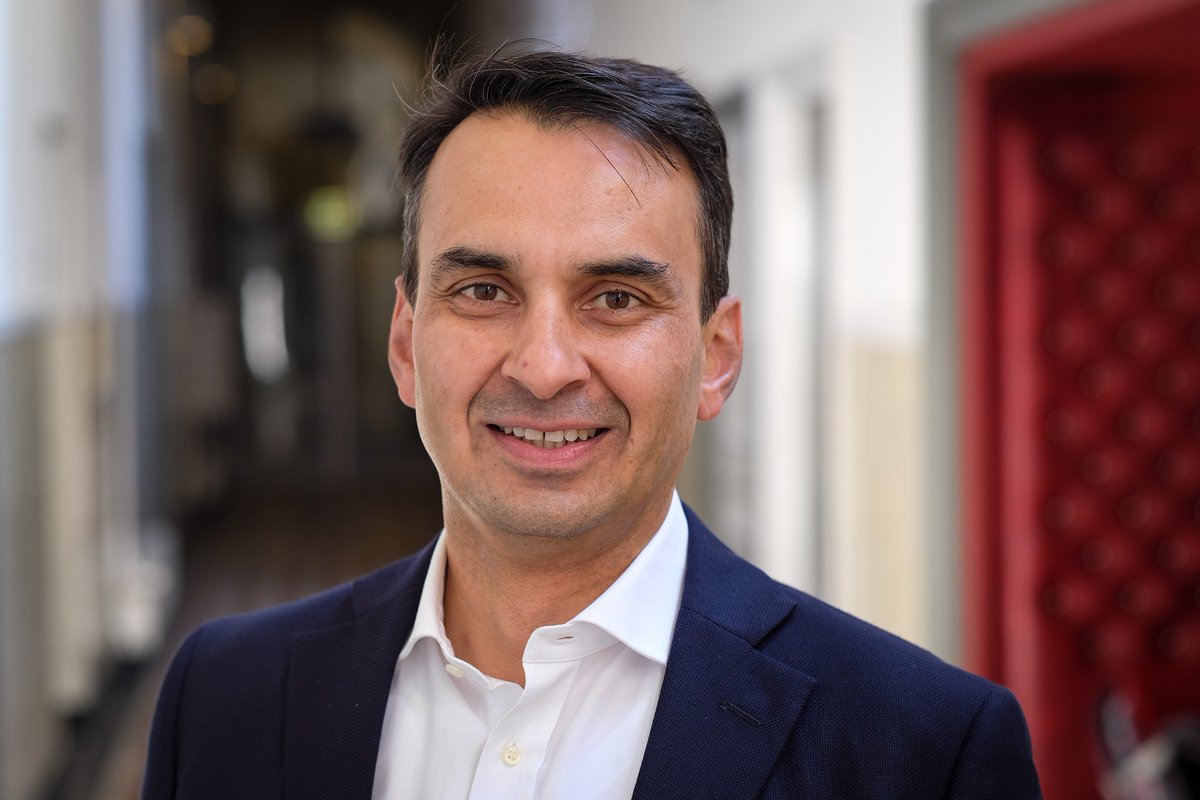
Future of Europe
European support for democracy: stress-tests ahead in 2022
Ken Godfrey and Richard Youngs write about 5 issues on the horizon in 2022 that will test how far the EU really is committed to defending democratic values.
15.02.2022
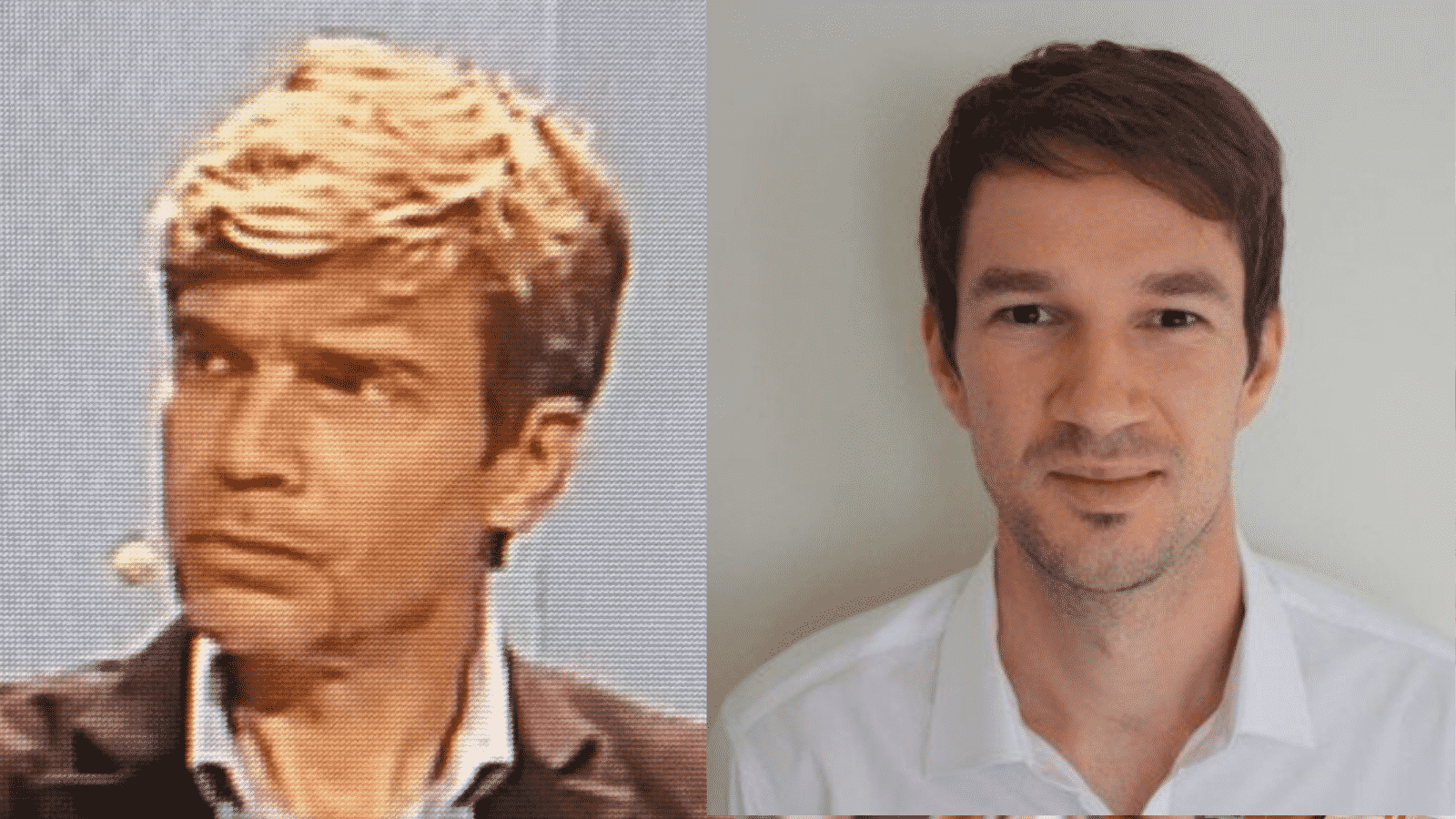
Future of Europe
Hungary two months before the elections – can the opposition win? Zsolt Enyedi in conversation with Daniel Rona [Party Co-Op Series]
Zsolt Enyedi discusses with Daniel Rona, director of the 21 research center the key questions related to the cooperation between the opposition parties before the April elections.
11.02.2022
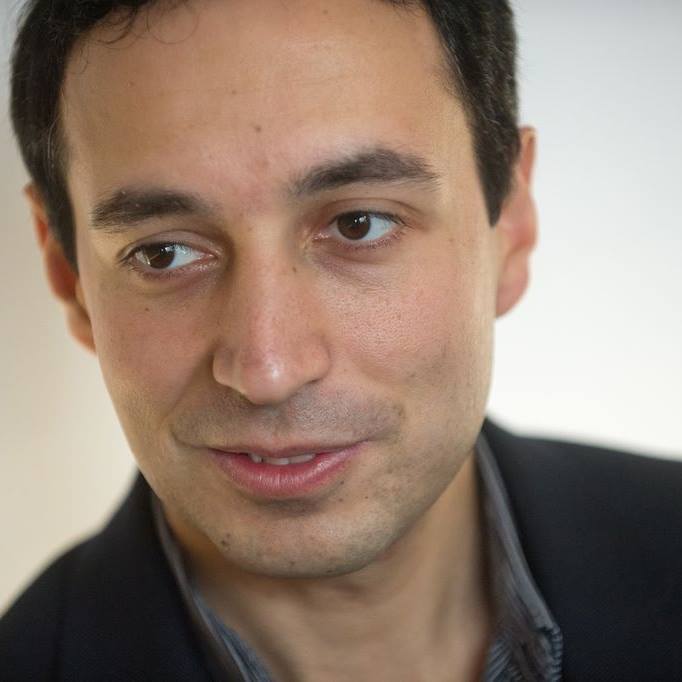
Future of Europe
RevDem Thread: Transnational lists and beyond. How to democratise Europe?
This is our first RevDem thread – a series of short pieces answering key questions about modern democracies from top experts and practitioners in the field. We invite all interested authors to send further comments to our email address.
8.02.2022

Future of Europe
In conversation with Tom Theuns: An EU 2.0? Mass Withdrawal of Pro-Democratic Member States
Oliver Garner interviews Tom Theuns about the possibility and justification of a mass-exodus of democratically minded Member States via Article 50 of the Treaty on European Union and the founding of an EU 2.0 in response to Member States becoming autocratic.
28.01.2022
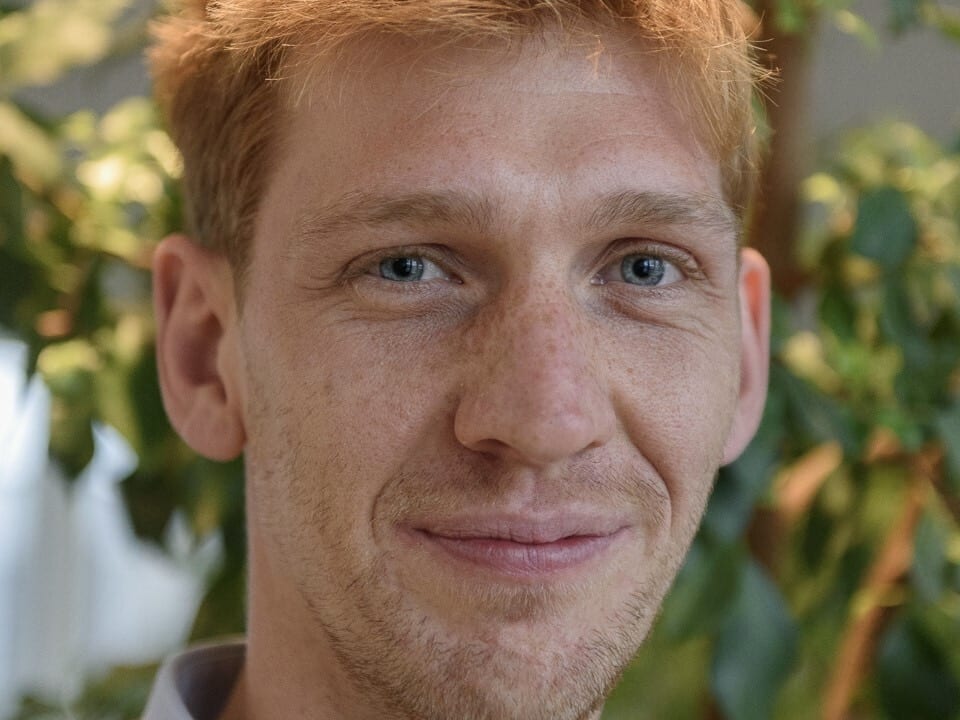
Future of Europe
Three tales about France and Eric Zemmour
Michał Matlak writes about the most controversial candidate in the French presidential elections - Eric Zemmour.
13.01.2022
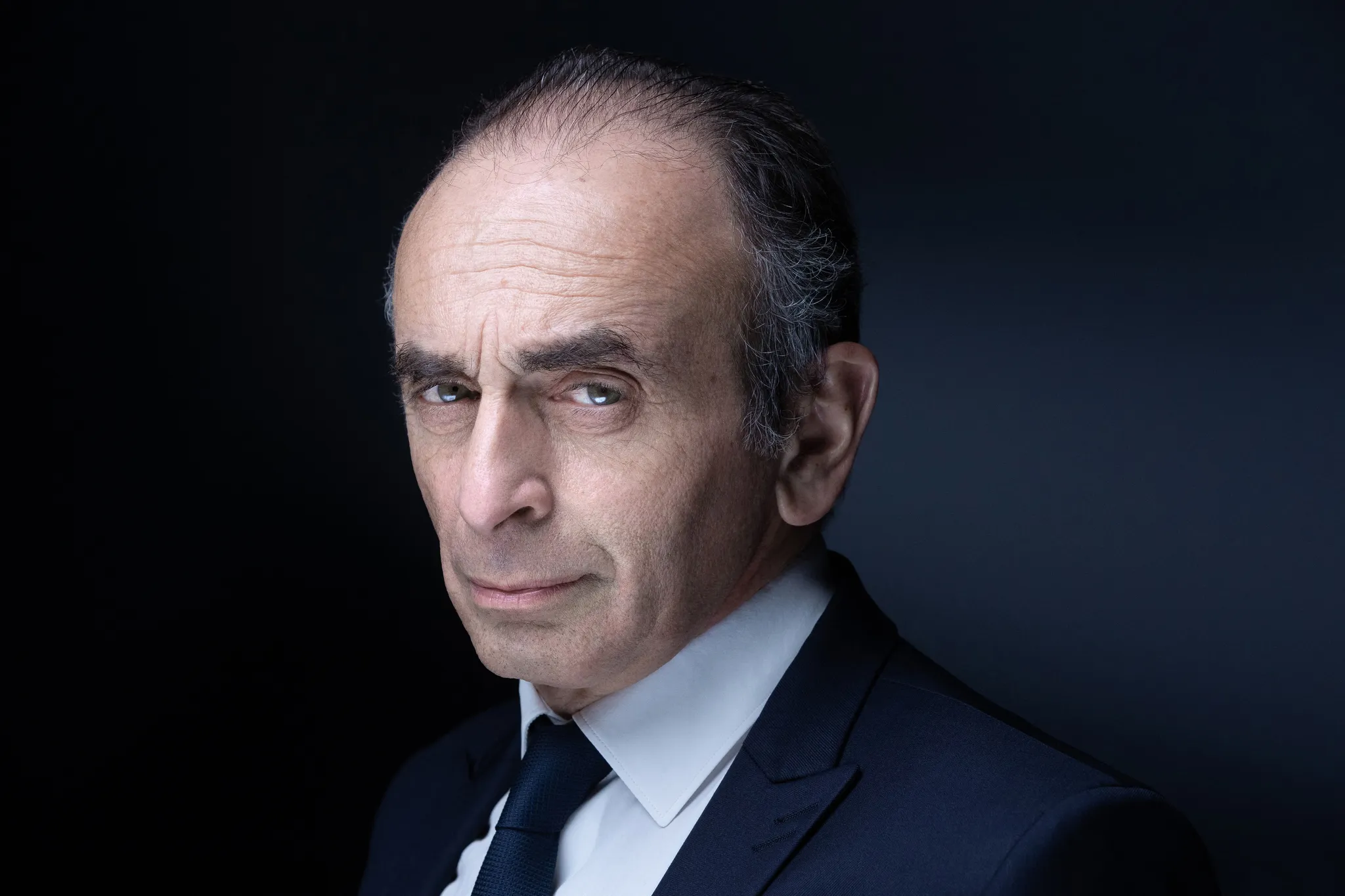
Future of Europe
Oliver Garner: Bridging Brexit and Polexit? Reforming EU withdrawal
This op-ed considers whether the reforms to the EU withdrawal that use the lessons of Brexit to address the possibility of "Polexit" can be helpful in resolving the ongoing values crisis in the EU.
7.01.2022

Future of Europe
6 Key 2021 Books: Rule of Law and the Future of Europe
Oliver Garner and Michał Matlak, the Review of Democracy editors, select 5 most important books in two areas: Rule of Law and the Future of Europe.
23.12.2021

Future of Europe
Future of Europe: It’s Not about Treaty Change, It’s about European Democracy
Michal Matlak interviews Alberto Alemanno in the aftermath of the publication of the first batch of recommendations coming from the Conference on the Future of Europe Citizens’ Panel. This initiative provides an opportunity for a highly diverse group of randomly selected ‘ordinary’ European citizens to voice their wishes with EU-level decisionmakers on how to change the European Union.
18.12.2021

Future of Europe
Richard Youngs on the Resilience of Democracy
Richard Youngs in conversation with Michal Matlak about citizens’ attitudes towards democracy, transformative power of protests movements, citizens’ assemblies as well as democratic innovations on the European level.
10.12.2021

Future of Europe
‘In the Name of the Family’: Conference Report on the Budapest Demographic Summit
The authors summarize and contextualize the content of the summit to argue that the conference not only provided an opportunity for its participants to address the ‘demographic crisis’ in Europe and the ‘family politics of conservative’ governments,’ but also amounted to an attempt to develop a transnational narrative for such self-declared conservatives that could unite political and ideological actors on various continents.
24.11.2021

Future of Europe
What After the Pandemic?
Kasia Krzyżanowska reviews for us “Pandemonium” by Luuk van Middelaar, a book that summarizes the crisis he deems as most important for the EU in decades: the coronavirus pandemic.
20.11.2021

Future of Europe
Julie Smith: Brexit negotiations have been damaging for both sides
Michal Matlak interviewed Professor Julie Smith, Baroness of Newnham, who is a Liberal Democrat parliamentarian in the British House of Lords. They discuss referendums, the causes and outcomes of Brexit, the negotiation strategies of both the EU and UK, the likelihood of the UK returning to the EU in the future, and how the COVID-19 pandemic has complicated post-Brexit evaluations.
19.11.2021

Future of Europe
Konrad Jarausch on Realistic Progress
RevDem editor Ferenc Laczo interviewed historian Konrad H. Jarausch, Lurcy Professor of European Civilization at the University of North Carolina at Chapel Hill, about his latest book Embattled Europe: A Progressive Alternative, a rich and finely balanced portrait of contemporary Europe.
10.09.2021
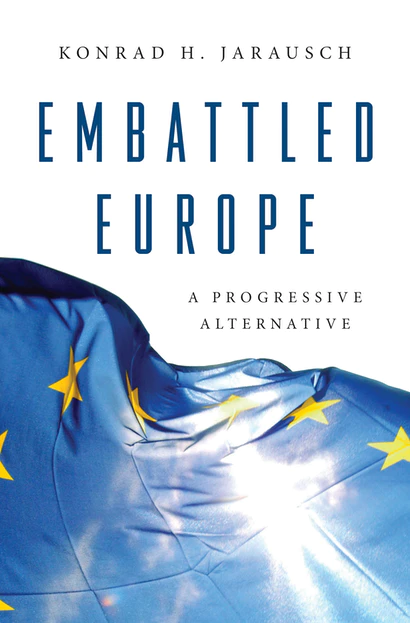
Future of Europe
Future of Europe: What is not forbidden is allowed. RevDem Interview with Guy Verhofstadt
Last week three RevDem editors interviewed Guy Verhofstadt, co-chair of the Conference on the Future of Europe. Today we are publishing the edited transcript of this conversation.
13.07.2021

Future of Europe
How East-West Dynamics Define Europe
In his article, Ferenc Laczo writes about the roots of the division of Europe into East and West and its consequences for European politics today.
3.07.2021

Future of Europe
Reading Barnier’s diary: Brexit and the nature of European integration
Our editor Michal Matlak reviews the secret diary of Michel Barnier, former EU chief Brexit negotiator and potential French presidential candidate.
11.06.2021

Future of Europe
Rule of Law is not like IKEA furniture
What is the societal dimension of the rule of law? How can we improve democracy on the European Union level? Is there a place for citizens engagement in design of the Conference on the Future of Europe? Paul Blokker, an associate professor at the University of Bologna, in a conversation with Kasia Krzyżanowska, unpacked all these issues.
2.06.2021

Future of Europe
[RevDem Launch Event] Conference on the Future of Europe: Democratic Innovation or Business as Usual?
May 9th marked the opening of the Conference on the Future of Europe. In the debate we organised one day later, the panellists discussed its objectives, how to achieve them and whether it can give a new impetus to European integration.
18.05.2021

Future of Europe
Citizens as Masters of the EU Treaties [Interview and Podcast]
Who are really the masters of the EU treaties and where does constituent power in the European Union lie — Markus Patberg, interviewed by Kasia Krzyżanowska, offers his answers to these questions.
12.05.2021
Future of Europe
The Future of Democracy in EU Member States
Michał Matlak summarises the debate on the future of democracy in Member States.
19.03.2021

Future of Europe
Conference on the Future of Europe: Process more important than outcome
Conference on the Future of Europe: The process is more important than the outcome. Interview with Alberto Alemanno, Jean Monnet Professor in European Union Law & Policy at the HEC in Paris.
18.02.2021

Future of Europe
RevDem Podcast with Alberto Alemanno on the Future of Europe
The RevDem, an online journal of the CEU Democracy Institute, presents a podcast interview with Professor Alberto Alemanno (HEC, Paris) and the founder of Good Lobby about the upcoming Conference on the Future of Europe, interviewed by RevDem editor Michal Matlak.
1.02.2021
